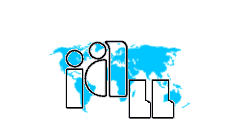Article Title
Islamic Governance, Capital Structure, and Equity Finance: Examining the Possibilities of American Financial Shari’ah Boards
Abstract
In this world of misinformation and predatory ideologies, a basic economic connection may be the difference between the success and failure of American foreign policy in the Middle East. In times of conflict, establishing the commonality of shared financial values can be the best way to build trust. It is remarkable then that the world’s largest and most advanced economy has failed to develop the simple financial mechanisms—using Islamic finance and Shari’ah boards—to connect with Muslims across the globe. Even if the United States’ central focus remains combating terrorism, it is clear that the more financial information the United States can gather, the better equipped it will be to fight the war on terror. Along with the enhanced information capital made possible through Islamic finance and Shari’ah boards are significant reputational advantages that the United States would not otherwise have. For instance, an Islamic-American humanitarian institution could be certified by multiple clerics in Iraq, thus offering new momentum to the organization’s humanitarian mission by preventing numerous belligerent attacks that terrorists might subject upon a purely American institution that lacks the legitimacy conferred through such Islamic ties.
Currently, The United States’ continuing domestic failure to develop a compatible framework for Islamic finance verges on negligence. This failure is strongly contrary to broader American commercial interests. Consider that economists estimate the outflow of Shari’ah capital from Gulf countries to be approximately $1 trillion, growing at 20% per annum. Additionally, Gulf countries are currently set to spend upwards of $10 trillion on new infrastructure over the next decade using Shari’ah compliant financing vehicles. The world currently has roughly two billion Muslims, many of which will one day demand, or at least prefer, Shari’ah compliant financial products. If the United States does not develop the administrative and legal framework to serve this market, other foreign financial institutions surely will. In fact, economists currently value the Islamic finance industry in the United Kingdom at $12 billion. In stark contrast, in the United States this same market comprises a mere $150 million in assets. This article will examine the necessary mechanics of establishing an Islamic-American corporation in Delaware for the purposes of conducting transactions with the Middle East, and analyze in detail the essential Islamic financial governance structure—the Shari’ah board.
Recommended Citation
Mahmood, Rafel
(2009)
"Islamic Governance, Capital Structure, and Equity Finance: Examining the Possibilities of American Financial Shari’ah Boards,"
International Journal of Legal Information: Vol. 37:
Iss.
1, Article 5.
Available at:
https://scholarship.law.cornell.edu/ijli/vol37/iss1/5
